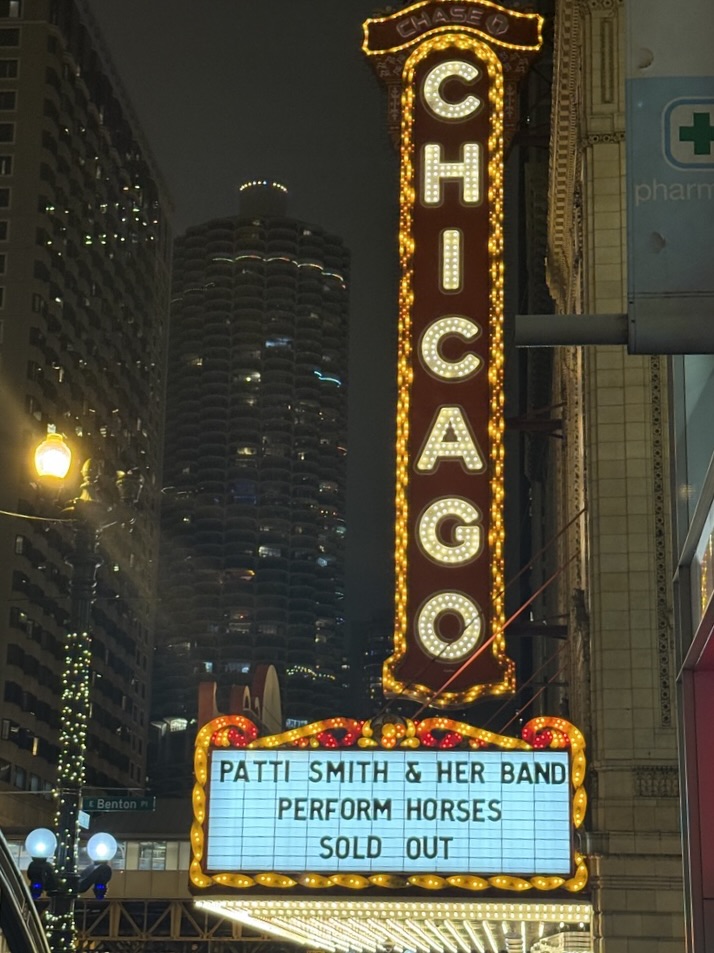AFI are a strange sight. The musicians look like your typical, workaday So-Cal punks, but then there?s the lead singer, Davey Havok?a strikingly androgynous figure cloaked in gothic garb making it easy to mistake him for a member of Marilyn Manson?s entourage. But it?s the combination of their fierce punk roots and Havok?s otherworldly howl that set AFI apart on a pop landscape that?s become increasingly homogenous in recent years. The band imbues the immediacy of primitive punk with modern production touches?perfected by the likes of NIN, Tool, and Garbage. The band even managed to recruit Jerry Finn and Butch Vig to produce the group?s Dreamworks? debut and most recent release, Sing the Sorrow, which finds them further accentuating the post-modern aesthetic of their sound.
Although it?s a bit early to arrive at a definitive conclusion, the early signs indicate that the band has made the right choices of late, both in its sonic maturation and its leap from the indie Nitro to the major label circuit. Sing the Sorrow has not only received almost unanimously positive critical notices, it also entered the Billboard charts as the fifth-best selling album in the country. For a band that?s been working at this for over 12 years, the sudden payoff has come as quite a shock.
Voices: First I just want to say congratulations on your first-week chart placing. Number five. Where were you guys when you found out?
Jade Puget (guitarist): I was right here. Yeah, we definitely weren?t expecting that.
Did you guys celebrate at all?
Nothing formal or anything. Just jumping around and stuff at our respective houses.
So you guys seem to have made a successful transition from an indie to a major, but many other bands in similar situations get lost in the shuffle. I was wondering if there was anything that you did differently to ensure that it went more smoothly?
We have friends who have had bad experiences. Jimmy Eat World put out a great record on Capitol and then got dropped. Our friends in Sick of It All and H2O also had contracts with majors and got dropped. It was scary because we were going from an indie where we were the darling of the label to [a major] where we had no idea what was going to happen. I think one of the things that helped us was the fact that AFI has been around for a long time and has made quite a few records, so that when we did go to sign we told them, ?We?ve been doing this for a while. We know what we need to do. We know how to make records.? We didn?t need for someone to come in and tell us how to work and everyone [at Dreamworks] kind of realized that.
So your background and fan base gave you more clout?
A lot of bands start out with their first album on a major and that?s really scary because you need to have a big song out of the gate or you?re over. You have nothing to fall back on. I definitely recommend a few small, shitty tours first. (Laughs) It builds character.
My understanding is that you were looking at several majors before you signed with Dreamworks. So was there a particular point where you collectively, as a band, decided that that was what you wanted to do?
Two things happened at the same time, I think. When we did the Warped Tour in 2001, we had all these major label [representatives] coming to the shows all of a sudden. At the same time, Dexter [Holland], the owner of Nitro (and the front man of The Offspring), sat us down and was like, ?Look, Nitro has done pretty much all it can do for you. You guys are too big for this label and we?re not going to be able to give you all the resources that you need.? Nitro was geared toward smaller bands and we wanted more distribution. You couldn?t get our records in Japan or Australia. You could barely get our records in Europe. We wanted to be able to tour these places and have people know who we were.
You felt that you outgrew the label?
Yeah, and Dexter realized that. Anyway, both of those things happening simultaneously dictated the logical next step.
Moving onto the album, what stands out about the recording of Sing the Sorrow? How did it differ from your previous experiences?
We had the time to make the album we wanted. The other records we were always rushed and we left stuff half-finished. There were things that we knew we could do better, but we didn?t have the time or the money to finish them. So that makes an obvious difference, and, of course, Jerry [Finn] being there?
Yeah, I was going to ask what it was like to have both Jerry Finn and Butch Vig there in the studio with you. They both have pretty impressive resumes. Was it at all intimidating to work with them?
We had already met Jerry. He had remixed one of our songs before. I guess we were intimidated by Butch for the first 10 seconds until we realized what a cool, laidback guy he is?totally mellow and polite. It really wasn?t intimidating. It was just kind of fun.
What do you think they brought to your sound that was missing before?
I don?t think that they necessarily brought anything to our sound as far as the songwriting. We had pretty much finished the album by the time we started working with Butch and Jerry. But sonically speaking, they brought everything. All their expertise in the studio, they brought to bear on the actual recording process.
One of the things that sets Sing the Sorrow apart from other modern rock albums in general is how up-front the backing vocals are in the mix. What?s the reason for doing that? Someone suggested that it might be AFI?s way of replicating its live sound on disc.
That?s definitely a part of it. The backing vocals and anthemic choruses have always been a major part of our songs. Growing up listening to punk music that had those choruses really influenced us as songwriters. If you listen to all the AFI records, the big choruses have always been an integral part.
I have to admit that I was a bit surprised to hear how dark the album sounded. I think after hearing the single, ?Girls Not Grey,? on the radio, I was expecting lighter and slightly more accessible fare. Did you worry at all that the single might give people the wrong impression or not represent the band?s sound?
Not really. I think part of that is that it was the radio single and it was the first song people heard. After hearing that on the radio and then listening to it [in the context of] the album, it?s going to stick out. I don?t think it would stick out nearly as much if you didn?t know that ?Girls Not Grey? was the single. When we recorded that song, it didn?t jump out at me or anything. I didn?t think to myself, ?Wow, this song is so much different.?
I?ve always thought that it must be strange for a band like yours, which has built a fan base steadily and organically over the years, to suddenly appear on MTV, have all this radio airplay, and experience a massive increase in fans. How has it felt to see your audience change almost overnight?
We haven?t actually toured yet, but we had a pretty good fan base to begin with. We?re playing pretty big places on this upcoming tour, but not arenas. When we start playing places like that, where every person who wants to go can go, then it?ll start getting interesting. We?ve toured with bigger radio bands and we?ve seen how it works. A lot of people will just leave after they hear the radio singles. It?s kind of ridiculous.
Yeah, that happens a lot at those types of shows.
I don?t really care. It?s fine. Those people can do whatever they want cause we know that we have our devoted fans who have been there with us for years and those are the people that are into us as a band and all of our music. Those are the ones we?re playing for. Of course, we hope that maybe we can convert the people who are just into the one song they heard on MTV and change their perspective on music a bit.
Well, if MTV gets them in the door, maybe that?s a good thing.
Sure. All of our fans were new fans at one point.








